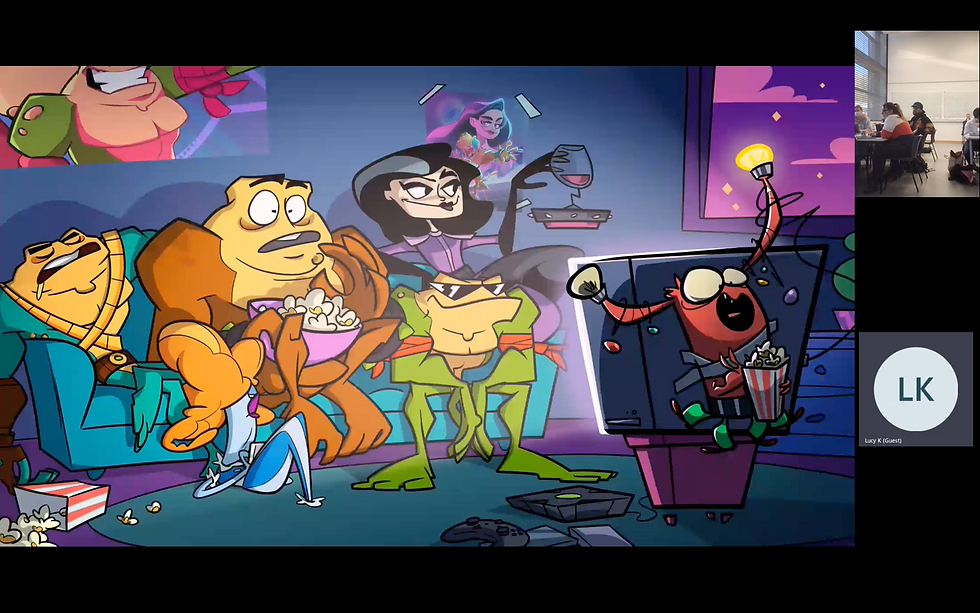Matteo Manepace:
- pm3u19
- Oct 27, 2021
- 3 min read
Updated: Jan 11, 2022
About the speaker:
Matteo is a board game designer and was the V&A Artist in residence. He also does a lot of board game design and focuses on cooperative play.
Can we make games to change the world?:
Why specifically games?
It’s interactive, shaping the narrative not just consuming it: this is a key aspect of games and what makes them a unique medium compared to all other media we intake this is the only one we can impact so it will leave a more powerful impression of what your intaking as you had an impact on it.
Games can be used to teach and train people: Monopoly was made for this case, Elizabeth Magie made a game to teach people about land and taxing on it.

Matteo was interested that the game scrapped the coop side so he investigated this and delved into coop games. he went onto do an article about 'pandemic' the board game this article got a fair amount of traction.
This lead to Matt Leacock the game designer of 'pandemic' reaching out to him across social media.

His twitter bio got the convo from pandemic article and essentially got the ball rolling to working together to make a climate change game. THIS shows how importance your bio and the way you express yourself is on things like twitter and instagram.
The design process of his current game:
When designing a game you don’t only need to think of the theme but how we frame it. Not just a game about climate crisis but actually delving into what makes a difference and who is the problem. This will be key if they want the game they have made to actually have a difference and changes the stance of the game from: Oh this is what. Climate change is into Oh this is how we can help slow down or prevent climate change
This was done with a lot of fine tuning on the projects prototypes and how they changed the game thoroughly throughout the development of the game and after play testers had experienced it as they could see what was and wasn't working
Q&A:
Q: ~70 iterations, how did you find the consistency of the new iterations as the project went on.
A: early in it’s about sweeping changes to see what works and what doesn’t. Then it’s about making quick iterations that can be made, changes and got rid of quickly.
As shown in these images, you can see the drastic changes they have made over the 70 different iterations of their game, From taking out whole aspects from the game like the world map to shifting to a smaller board and focusing on cards in the game.
Follow up after my Q: about play testing and what involvement you should have in it
Starting off its a ‘toy’ its complex but fun. you will NEED to be there to explain and help share the experience
but…
it gets to a point where you have a polished product and you are too biased, so *remove yourself from the situation* and get them to record themselves ideally their face, voice and the game. This lets you capture all the important things to get a good response
Map the emotional journey: beginning, middle and end
How do you feel, do you understand, are you invested.
Overall play testing is key to the developmental period of producing a game. as you are so biased towards the project you can find all the meaning of your game is in your head so you need to make sure it translates to gameplay and Experience.
Two main things have stood out from this talk:
the power of social media and how it can dramatically get the ball rolling from common interests to invitations of making a whole game together.
the colossal importance of play testing, not only the act of play testing but also the pool of people doing it and all their reactions as well as your involvement in the experience.
Now I don't think these are instant tickets to success but as Matteo said it's about leaving breadcrumbs for others to pick up on. These are things to up my chances in the industry not sure fire ways to achieve my goals.











Comments